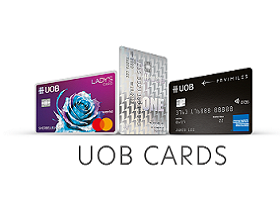Did you know you can pay less tax while saving towards retirement? You can do both by leveraging existing schemes such as the Supplementary Retirement Scheme (SRS) and Central Provident Fund (CPF) cash top-ups. Read on to discover how these strategies can benefit you.
1. Review and understand your tax bill
First, understand your tax bill. Once you’ve filed your taxes, you will receive your Notice of Assessment (NOA) together with your tax bill from the Inland Revenue Authority of Singapore (IRAS) from end April. Log on to the IRAS myTax Portal to view your detailed tax bill. The Year of Assessment 2025 includes income earned from 1 January to 31 December 2024, with taxes due in 2025.
After receiving your NOA, check that your income and all allowable deductions like relief claims are accurate. Your taxable income is your total income minus allowable deductions. If there are errors, submit amendments quickly on the tax portal within 30 days.
As your income may increase over the years, so will your marginal tax rate. Consider reducing your tax bill through the following ways.
2. Contribute to the SRS to enjoy tax relief and grow retirement savings
The voluntary Supplementary Retirement Scheme (SRS) lets you save for retirement while qualifying for tax relief at the same time. You can open an SRS account with any local bank and make deposits up to the annual contribution limit. Contributions to the SRS account qualify for tax relief subject to the personal income tax relief cap for each year of assessment.
You can withdraw from your SRS account at any time. However, early withdrawals from your SRS account before the statutory retirement age will incur a 5% penalty and the withdrawn amount will also be subject to taxes. When you withdraw from your SRS account on or after the statutory retirement age, only 50% of the amount withdrawn is taxable. Since SRS is a long-term financial commitment, you should assess your short-term liquidity needs before making contributions.
SRS savings can be invested to earn potentially higher returns than interest on your bank deposits. Make sure you have the appropriate risk appetite before you start as investments always come with risk of capital loss. Speak to a financial advisor to explore SRS investment or insurance options that suit your risk profile and financial goals.
Tip #1: From 1 July 2026, the SRS penalty-free withdrawal age will rise from 63 to 64 together with the statutory retirement age. Open an SRS account if you have not done so and make your first contribution to lock in the lower penalty-free withdrawal age.
Get started here: SRS Account | UOB Singapore
3. Earn tax reliefs and build CPF retirement savings with cash top-ups
Earn tax reliefs on cash top-ups to your own or loved ones’ Central Provident Fund (CPF) Special Account (SA) or Retirement Account (RA). If you top up your own SA or RA, you also boost your retirement savings for higher CPF LIFE monthly payouts after age 65 for as long as you live.
Tip #2: While you enjoy tax relief of up to SGD8,000 on CPF cash top-ups to yourself and an additional SGD8,000 on cash top-ups to your loved ones, take note of the personal income tax relief cap of SGD80,000 that applies to the total amount of all tax reliefs claimed for each Year of Assessment. Therefore, make sure you qualify for tax reliefs before making any claim.
4. Use tax rebates to boost retirement savings
As part of the SG60 package announced in Budget 2025, tax residents get to enjoy a personal income tax rebate of 60% of tax payable, capped at SGD200 for Year of Assessment 2025.
Additionally, banks may periodically offer cash rebates on income tax payments made through GIRO. These rebates may help you grow your retirement savings.
Tip #3: To stretch your dollar, use savings from tax rebates to make cash top-ups to your own or loved ones’ CPF SA or RA to enjoy tax reliefs as well as stable long-term returns for retirement on these balances.
Find out more: UOB One Account Tax Saver Promotion | UOB Singapore
Conclusion
Contributing to your SRS account and making CPF cash top-ups to your SA or RA can potentially lead to tax savings. Consider these as small steps you can take now to boost retirement savings for a more secure financial future.
This publication is for general information and general circulation only and does not have any regard to the specific investment objectives, financial situation and particular needs of any specific person. The information contained in this publication shall not be regarded as an offer, recommendation, solicitation or advice to buy or sell any investment product, or to make any investment, or to undertake any particular investment strategy and shall not be transmitted, disclosed, copied or relied upon by any person for whatever purpose. Any description of investment products is qualified in its entirety by the terms and conditions of the investment product and if applicable, the prospectus or constituting document of the investment product. Nothing in this publication constitutes accounting, legal, regulatory, tax, financial or other advice. You should consult your own professional advisers on any matter which concerns you to understand the risks involved and whether it is appropriate for you to assume such risks before investment in any product.
The information contained in this publication, including any data, projections, underlying assumptions and any articles referred to in this publication, are based on certain assumptions, management forecasts and analysis of known information and reflects prevailing conditions as at 21 April 2025, all of which are subject to change at any time without notice. Although every reasonable care has been taken to ensure the accuracy and objectivity of the information contained in this publication, UOB and its directors, officers and employees make no representation or warranty of any kind, express, implied or statutory, and shall not be responsible or liable for its completeness or accuracy. As such, UOB and its directors, officers and employees accept no liability for any error, inaccuracy, omission or any consequence or any loss/damage howsoever suffered by any person, arising from any reliance by any person on the views expressed or information in this publication.
This advertisement has not been reviewed by the Monetary Authority of Singapore.















